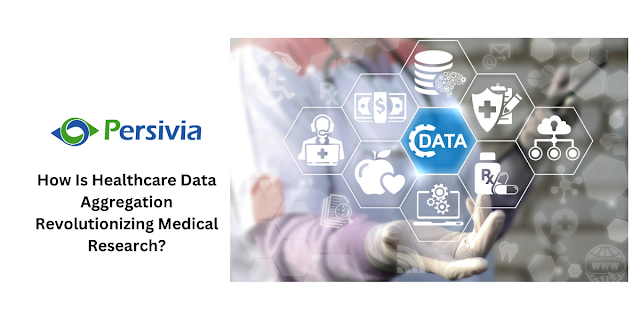Data Exchange vs. Healthcare Data Aggregation
Data has emerged as a driving force in the healthcare
sector, transforming how medical professionals deliver care, conduct research,
and make informed decisions. Data Exchange and Healthcare Data Aggregation
are two approaches that facilitate seamless access and utilization of critical
information within the healthcare ecosystem.
What Data Exchange Means?
Data Exchange involves the process of sharing medical
information and patient records between various healthcare entities, such as
hospitals, clinics, laboratories, and pharmacies. The goal is to enable
interoperability and smooth communication across disparate systems, enhancing
care coordination and reducing redundancies.
Advantages
·
Faster
Decision-Making: With instant access to
patient data, healthcare providers can make well-informed decisions promptly,
leading to improved patient outcomes.
·
Reduced Errors: Data Exchange minimizes the likelihood of errors arising
from incomplete or outdated medical records, ensuring accurate diagnoses and
treatments.
·
Streamlined
Workflow: Efficient data exchange
streamlines administrative tasks, freeing up valuable time for healthcare
professionals to focus on patient care.
The Importance of Data Exchange in
Healthcare
In today's interconnected healthcare landscape, patients often receive care from multiple providers. Data Exchange plays a pivotal role in ensuring that healthcare teams have a comprehensive view of a patient's medical history, medications, allergies, and test results. This holistic approach to data access promotes patient safety and improves treatment effectiveness
.
Healthcare Data Aggregation Explained
Data Aggregation in Healthcare involves the gathering of vast amounts of patient data from
various sources, such as EHRs, wearable devices, and health apps. This process
consolidates data for comprehensive analysis, research, and population health
management.
Advantages
·
Population Health
Insights: Aggregating healthcare data
allows researchers and public health officials to identify trends, risk
factors, and potential outbreaks, contributing to proactive healthcare
measures.
·
Supporting
Research: By analyzing aggregated data,
researchers gain valuable insights into diseases, treatment effectiveness, and
the impact of public health policies.
Overcoming Challenges
Data Aggregation in Healthcare encounters challenges
related to data quality, privacy concerns, and data silos. Implementing robust
data governance practices, data anonymization techniques, and secure storage
solutions can address these issues and unlock the full potential of aggregated
data.
Wrapping Up!
Data exchange and healthcare data aggregation are two
pillars of modern healthcare that revolutionize patient care, clinical
decision-making, and medical research. While data exchange enhances
communication and care coordination, the other empowers healthcare providers
with valuable insights into patient populations.
Get your detailed Healthcare data aggregation platform at
Persivia. Visit our online platform now!



Comments
Post a Comment